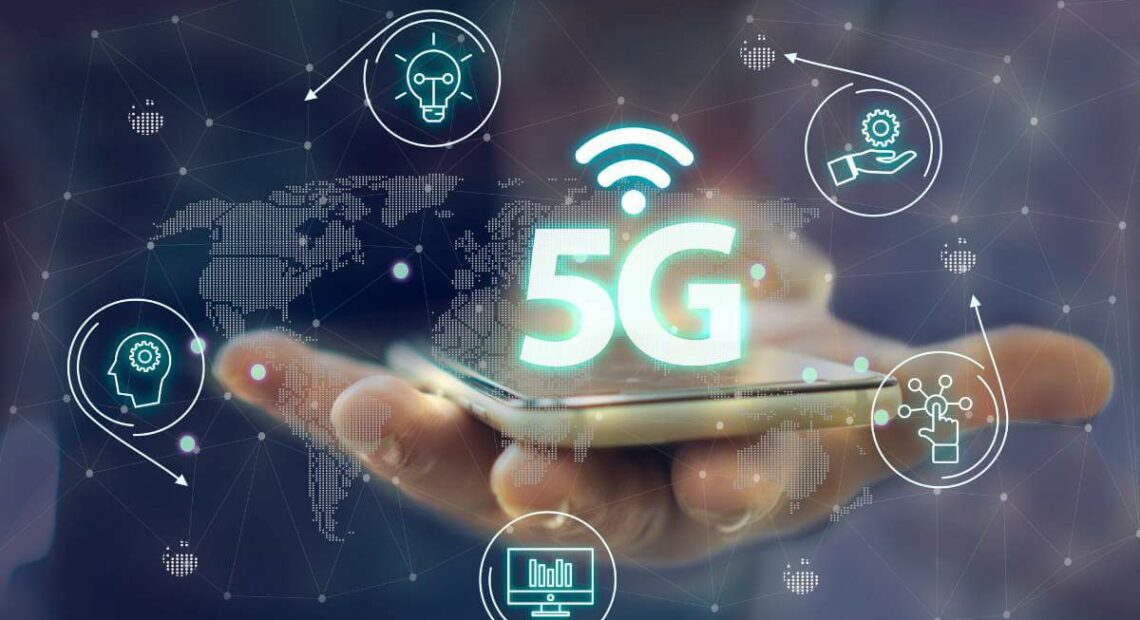How 5G is Changing the Landscape of Technology

Every technological advancement in the globe leaves its impact in more than one way. The same is true for 5G, the next-gen wireless phenomenon. 5G brings with it better internet speed and connectivity. The 5G speed is a hundred times faster than LTE; its latency has improved from the previous 20ms to less than one ms. Also, it supports a massive connection. Lastly, 5G has reduced power consumption by 90%. All the differentiating factors of 5G present numerous opportunities to act as a catalyst for further technological advancement. Here is how it is impacting the technological aspect in different sectors.
Manufacturing
With the help of 5G networks, manufacturers can work towards building smart factories. This factory has many additional technological advantages like artificial intelligence, automation, IoT and augmented reality. Also, the characteristics of 5G associated with high reliability and low latency ensure the smooth functioning of critical applications in the manufacturing sector. If you already use a 5G network, use Speed Test to see the stark difference in the latency rate between 5G and 4G.
The use cases of 5G in the manufacturing sector include process automation, collaborative robotics, augmented reality for repairs, additive manufacturing and remote monitoring of production assets.
Automotive
In today’s world, millions of vehicles use cellular networks for real-time navigation. Additionally, it enables one to enjoy infotainment and emergency services too. 5G will play a crucial role in the automotive industry. Firstly, it will enhance vehicle features and capabilities to make the cars safer. 5G supports vehicle-to-everything, which helps bring traffic efficiency and can further reduce collisions.
Artificial intelligence is the key to autonomous vehicles. Even though 4G networks have ensured the use of artificial intelligence in cars, the same cannot be said for machine-to-machine communication or M2M. It is because M2M communication requires a massive amount of bandwidth that 5G can thankfully support.
In addition, 5G in the automotive industry assures fully autonomous vehicles, safer smart roads and advanced auto manufacturing.
Smart City
The concept of the smart city is a familiar one, but 5G has the potential to take it to the next level. Smart cities require a wide range of IoT active connections to improve different aspects of a city, like environmental impact and quality of life. Only 5G can support many connected devices to make a city truly smart. Use the Airtel platform to check how the number of devices connected to a network can directly impact the internet speed.
5G is a network that carries the power of creating virtual connections to almost everything and everyone, including objects, devices and machines. Also, it does that at a much higher rate than the current network. As a result, 5G provides digital solutions for smart cities, making them more liveable.
Healthcare
The 5G network can improve and further transfer the different critical components of the healthcare sector cost-efficiently. With the increasing use of 5G in healthcare, the application of IoT, robotics and AI will be profound in the healthcare industry. The use-case of 5G in this sector is so crucial that it can give rise to an era of limitless possibilities. The low latency rate of 5G is one of the most critical features of 5G that increases its role in making a difference in healthcare.
5G is revolutionizing the healthcare sector through enhancing remote surgery, patient monitoring, emergency response care, elderly medical care and bringing in healthcare equality. Its use cases in the sector include computer-aided diagnostics, connected ambulances, medical sensors and telemedicine.
Agriculture
Gone are the days when agriculture was all about manual labor. 5G is revolutionizing the agricultural sector by introducing the smart agriculture concept. Farmers can use the 5G network to engage in smart farming technologies. Additionally, it helps in crop monitoring with the help of suitable sensors and devices. This data will also enable the farmers to fine-tune the different conditions to ensure maximum crop productivity.
5G can also be used for running autonomous tractors, keeping farmers safe from different occupational hazards. Other use cases include cellular-connected robots and drones, which can be used to inspect large expanses of land to gather even the minutes of the details.
Thus, 5G has the potential to revolutionize not one but numerous industries to create an immediate impact for its customers. According to an analysis, the impact of 5G is high in the following sectors: agriculture, automotive, energy and utilities, healthcare, manufacturing, media and entertainment. Moreover, 5G is expected to go beyond traditional data and voice services to ensure further advancement in the coming year.
Picture Courtesy: Google/images are subject to copyright








